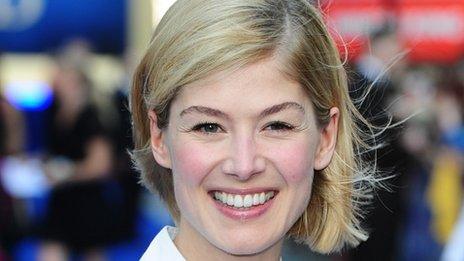Rosamund Pike says actors won't 'play second fiddle' to actresses
- Published
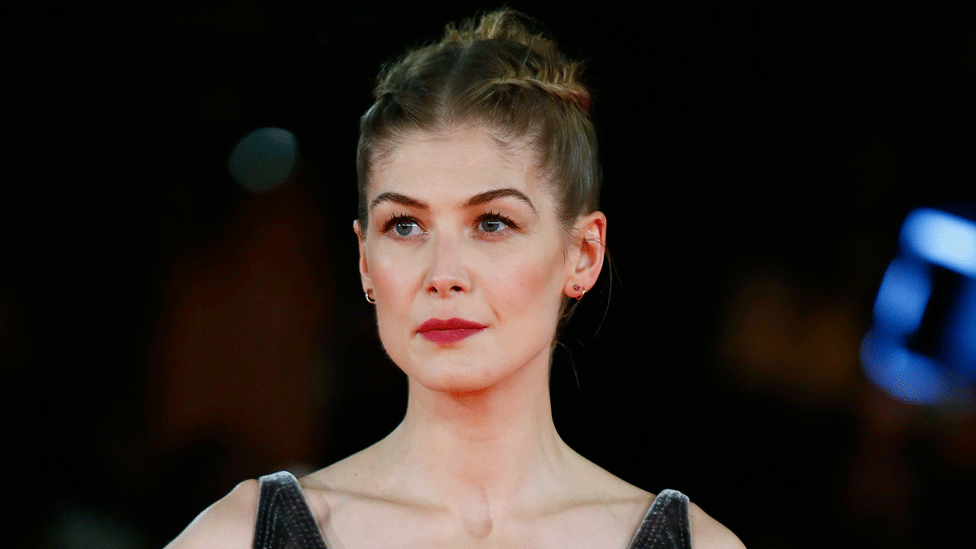
Pike's films include Gone Girl, Die Another Day, Made in Dagenham and Jack Reacher
Gone Girl actress Rosamund Pike says there won't be more female leading roles in Hollywood movies until male stars change their attitude.
"Male actors now have to decide that they are willing to play supporting roles to female leads," Pike said.
"And often it seems men don't want to," she told Radio 4's Film Programme.
"They're more than happy to play a supporting role to Christian Bale - another man - (but) less happy to play supporting roles to a lead woman."
Pike is starring in gritty Western Hostiles with Bale, which is released in the UK on Friday.
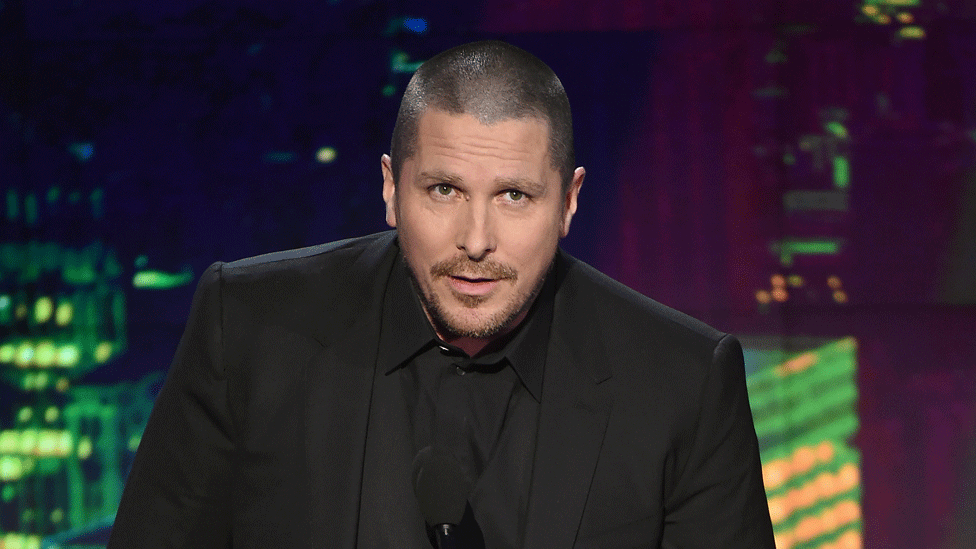
Bale will next play former vice president Dick Cheney in the biopic, Backseat
Pike continued: "Many, many actors are coming out saying we want more female-driven stories, we want fantastic roles for women... so the next consequence is, if you want those to come, then the boys have to play second fiddle.
"That's just the way it is. Until that happens, there will be fewer films with female leads made," she added.
Films with leading female stars and supporting male actors are not as common as the other way round.
But there are some well-known examples, including 2013's Oscar-winning film Gravity, with Sandra Bullock playing the lead alongside George Clooney, and sci-fi flick Arrival (2016), with Jeremy Renner in a supporting role alongside Amy Adams.
A 2016 study suggested that inequality is "entrenched" in Hollywood, with women, minorities and LGBT people among those excluded.
The University of Southern California's report, external showed that women had just 31.4% of spoken roles in 2015's top 100 films, compared with 32.8% in 2008.

Follow us on Facebook, external, on Twitter @BBCNewsEnts, external, or on Instagram at bbcnewsents, external. If you have a story suggestion email entertainment.news@bbc.co.uk.
- Published6 October 2016
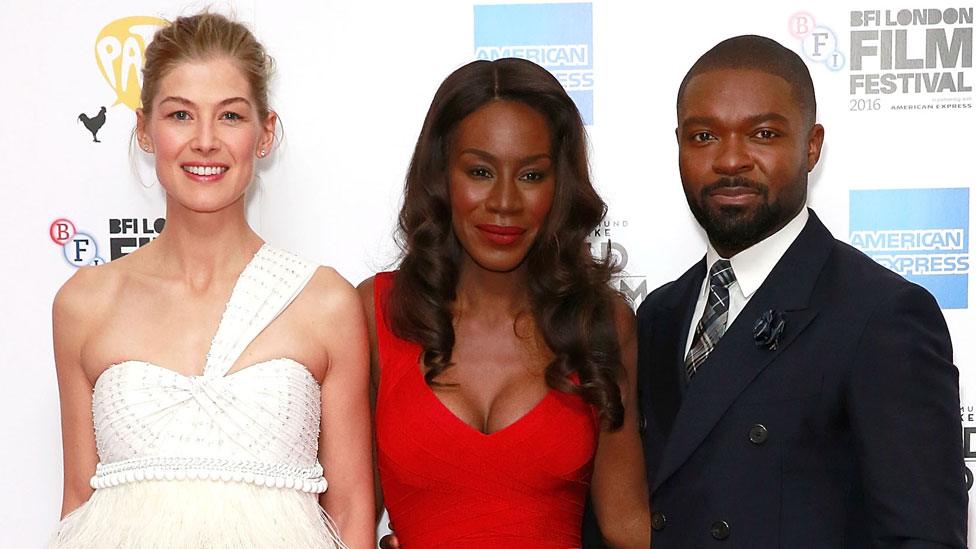
- Published5 May 2016
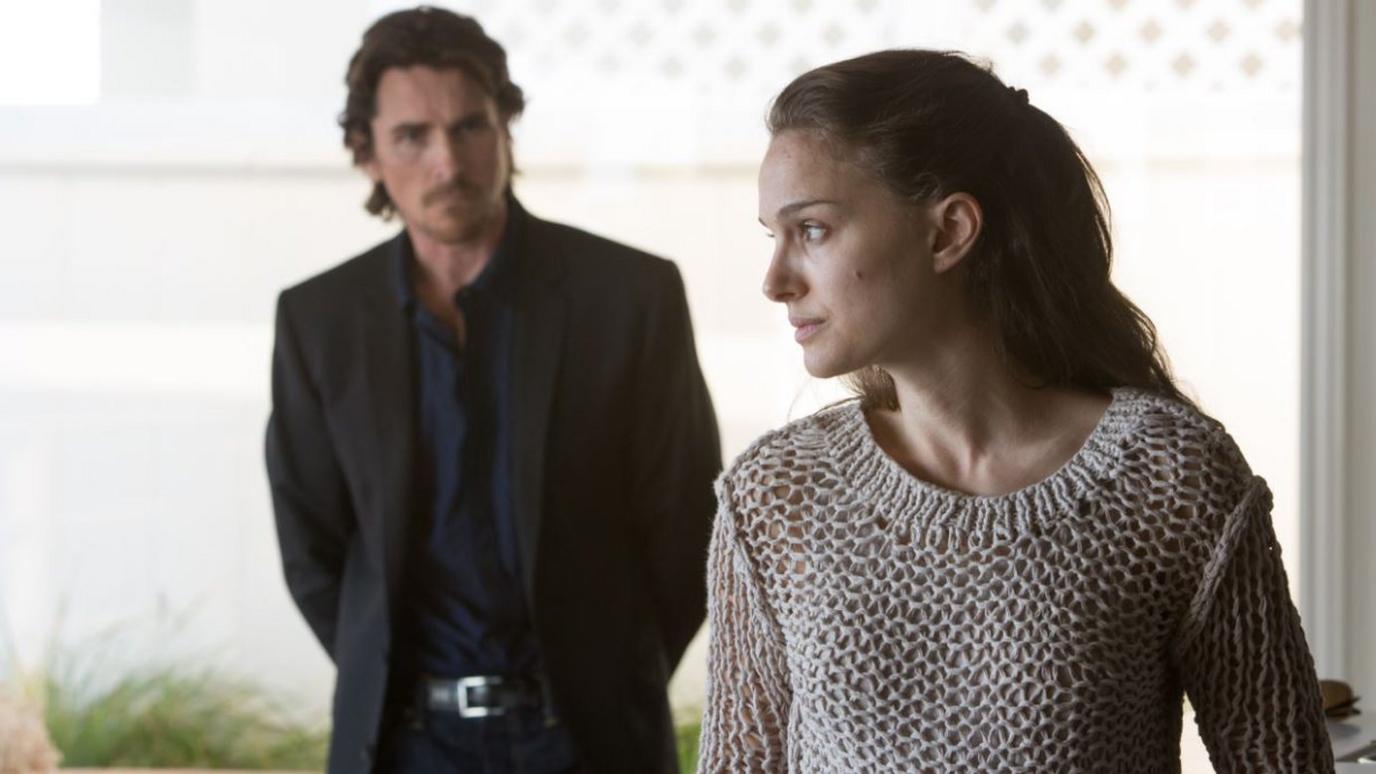
- Published26 July 2013
